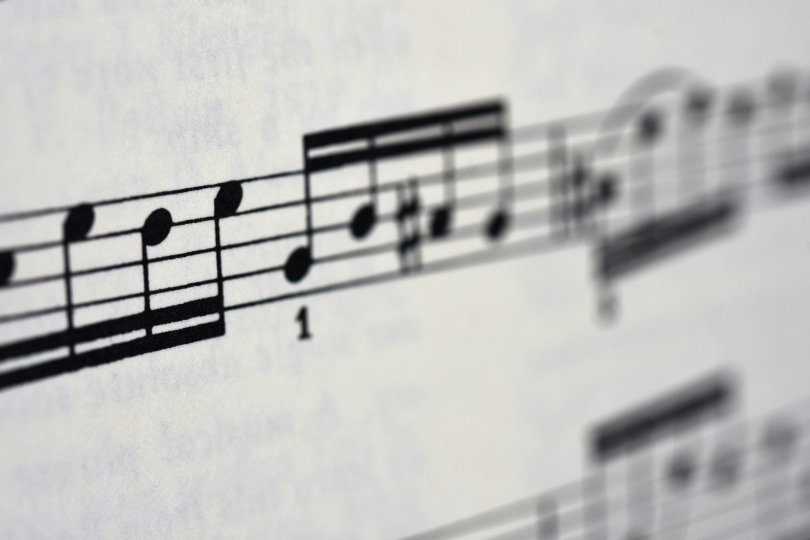
Music Is Not Rocket Science #6: Neurological Digression
Music is a fascinating object of study for neuroscientists because it provides them with an enormous amount of material about the brain's functioning in many cognitive tasks. The creation, perception, and active interpretation of music are universal human characteristics that have a neurobiological basis. In the scientific community, music is viewed from a historical rather than a biological perspective, because since its birth, music has been quite logically associated with art and culture. But its study is also increasingly entering the context of the brain's function and its myriad mysteries. But what if something doesn't work the way we think it should? In our neurological-musical digression, we look at five little-known disorders of music perception – amusia, agnosia, hallucination, anhedonia and musicogenic epilepsy.
1. Amusia
This is the inability of some individuals to recognise simple melodies. In common speech, you have probably encountered this phenomenon when someone referred to either themselves or some other musically undeveloped individual as "tone-deaf." However, in that case, it is definitely not a diagnosis, but rather a social cliché. The first documented case of congenital amusia was recorded in 2002 by the University of Montreal in Canada, where they followed the case of a middle-aged woman who lacked the most basic musical skills.
Amusia can be congenital or acquired. Congenital amusia is present from birth or inherited through genes, while acquired amusia can result from accidental brain damage, stress or cognitive deficits. Symptoms of this disorder manifest as a lack of basic melodic discrimination and recognition of pitch, colour and note length, yet the individual has a normal hearing function or above-average intellectual, memory and language skills.
Another notable symptom of amusia is the ability of the affected individual to speak and communicate normally but is unable to sing. Amusic individuals show a particular deficit in distinguishing musical variations and cannot identify even notorious melodies. Neuroscientists are now classifying congenital amusia as a new class of learning disabilities that affect musical ability (Peretz, Ayotte 2002).
2. Agnosia
The term agnosia refers to a loss of knowledge. It is the inability to recognise music while having normal sensory, intellectual and verbal functions. Musical agnosia is most often acquired, in most cases resulting from a heart attack or stroke. There is also a subtle distinction between auditory and musical agnosia; the former refers to the inability to identify sounds in the environment, while the latter refers to the inability to recognise music. The main symptoms of musical agnosia range from the inability to perceive pitch, rhythm, chords and notes to the inability to distinguish and recognise familiar songs, to assess tonality or to reproduce musical phrases.
3. Hallucinations
Musical hallucinations can be described as the perception of musical sounds without external auditory stimuli. Although it is possible to hallucinate non-musical sounds such as bells, whistles or sirens, studies show that the musical context dominates over all other auditory hallucinations. In addition, musical hallucinations can often take the form of songs from childhood and can be associated with strong emotions from the past. Causes may include psychiatric disorders, stroke, epilepsy or intoxication.
4. Anhedonia
This is a neurological disorder characterised by the inability to derive pleasure from music. People with this condition, unlike those who suffer from musical agnosia, can recognise and understand music but cannot enjoy it. Research has shown that people with this condition have reduced functional connectivity between areas of the brain responsible for processing sound and areas related to reward. Music is often considered a universal language, praised for its ability to connect and, more importantly, evoke emotion. Thus, in this context, it can be difficult for individuals with musical anhedonia to understand why they do not enjoy music.
The term "musical anhedonia" was first used only recently, in 2011. It was originally used to describe the selective loss of emotional responses to music after brain damage. According to recent studies, the prevalence of this disorder affects approximately 3 to 5% of the population, which is not an entirely insignificant number. So be forgiving if you notice that your favourite music is leaving someone completely cold. We all have a story full of complex knots.
5. Musicogenic seizure
A certain type of melody can trigger an epileptic seizure when there is an increase in the activity of the right temporal lobe, where the auditory centres are located. This is a specific type of seizure with an estimated prevalence of one case per 10,000,000 individuals. Disorganised or abnormal electrical activity in the brain is triggered when a person is exposed to a specific type of sound or musical stimulus. Music triggers the part of the brain responsible for evoking the emotion associated with its melody or sound. Dysfunction of this system leads to an abnormal release of dopamine, which eventually triggers a seizure. On the other hand, music therapy has been successfully used to counteract severe epilepsy. Thus, musicogenic seizure is indeed a very rare reaction and disorder.
Zdroje: Wikipedia, solen.cz, neurosciencenews.com
If you have found an error or typo in the article, please let us know by e-mail info@insounder.org.

